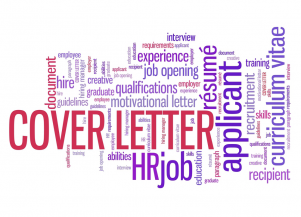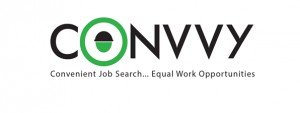
What is a cover letter? And why are cover letters important for jobseekers? A cover letter is a letter of introduction that highlights your key accomplishments and fit for a job opening. Cover letters are important because they give you the opportunity to add details about information mentioned on your resume.They also allow recruiters to differentiate between two candidates with similar qualifications. Writing a terrific cover letter can set you apart so you should definitely include one.
Each cover letter should be tailored to the individual job ad. You don’t have to start from scratch every time, but you should adjust the content to best reflect what makes you an ideal candidate for the position at hand.
You might think your resume gives employers all the info they need about you. In reality, a resume is of limited value to an employer without a cover letter for context. Cover letters are important because they tell employers the type of position you’re seeking — and exactly how you’re qualified for it.
You might think your resume gives employers all the info they need about you. In reality, a resume is of limited value to an employer without a cover letter for context. Cover letters are important because they tell employers the type of position you’re seeking — and exactly how you’re qualified for it.
Your cover letter can also explain things that your resume can’t. If you have large gaps in your employment history, are reentering the job market, or are changing careers, a cover letter can explain these circumstances in a positive way.
Unfortunately, your cover letter can also be a detriment if it’s low quality or contains careless errors. One hiring manager and Forbes contributor says he gives cover letters a glance and quickly discards those that take obvious short cuts or don’t carry the tone he’s seeking, for example.
Here are 10 cover letter writing tips to help you avoid the trash bin and score an interview:
1. Address a specific individual
That same Forbes contributor says one thing that he tosses a cover letter aside for is a generic salutation. If a cover letters are important, getting the details right in them are essential, so avoid “To Whom This May Concern” openings and do the research to get a hiring manager’s name.
2. Write a strong first paragraph
After starting strong with a personalized greeting, don’t drop the ball with a weak opening paragraph. Your first paragraph should hook the reader and make them want to read the rest of the letter — and your resume.
While not everyone considers a minor typo an unforgivable cover letter or resume sin, enough hiring managers and recruiters will toss aside documents with mistakes that it’s worth proofing yours more than once.
3. Highlight a few highly relevant details
Cover letters are important because they give you extra real estate to make your case that you are the right person for the job. Use that space to highlight the most relevant details about your skills, experience, or credentials — things you don’t want the employer to miss from your resume or that aren’t easy to include in a resume. Whenever possible, add data or numbers to illustrate the effects of your hard work.
4. Illustrate how your qualifications fit the position
Don’t just list your qualifications; tie them actively to the position at hand. What about those qualifications can bring value to the team or help you perform the job? If you have a short anecdote or achievement from a recent job, you can include it.
5. Relate yourself to the company
Whenever possible, tie yourself to the company. Do you care greatly about the mission and vision? Do you use the company’s product? Have you followed R&D news from the brand for years? These are great tidbits to include in a cover letter, because they show you’re invested.
6. Don’t include negative information
Don’t give the employer any reason to say no to an interview. Sure, no one is perfect, but the cover letter isn’t the time to go into any details about negatives. Concentrate on positives.
7. Keep it to a single page
Cover letters are important, but they aren’t so weighty they should drone on for pages. Employers don’t have time for that, and the critical details will likely be lost in the fluff. Keep your message succinct and clear.
8. Proofread… and then get a second set of eyes
While not everyone considers a minor typo an unforgivable cover letter or resume sin, enough hiring managers and recruiters will toss aside documents with mistakes that it’s worth proofing yours more than once. Read your cover letter out loud to ensure it flows well, and have a trusted friend look it over for typos you might have missed.
9. End your cover letter on a high note
End your letter like you started it: on a strong, professional note. Check out our cover letter samples for inspiration on how to end your cover letter in a memorable way.
10. Skip the gimmicks
Finally, cover letters are important in differentiating you from the crowd, but go about it in a professional way. Make yourself unique by the way you write and convey your credentials, and not through gimmicks like bright pink paper or elaborate fonts.
Cover letters are important, and you shouldn’t skimp on them during the job search process. They can help you focus employer attention on the most important aspects of your resume and ensure you stand out from the candidate pile.
Need more help writing your cover letter? LiveCareer has a bevy of resources to help you make your cover letter sing. Check out the options below from our cover letter writing resources.
Source: https://www.livecareer.com/career/advice/cover-letter/cover-letter

What is a cover letter? And why are cover letters important for jobseekers? A cover letter is a letter of introduction that highlights your key accomplishments and fit for a job opening. Cover letters are important because they give you the opportunity to add details about information mentioned on your resume.They also allow recruiters to differentiate between two candidates with similar qualifications. Writing a terrific cover letter can set you apart so you should definitely include one.
Each cover letter should be tailored to the individual job ad. You don’t have to start from scratch every time, but you should adjust the content to best reflect what makes you an ideal candidate for the position at hand.
You might think your resume gives employers all the info they need about you. In reality, a resume is of limited value to an employer without a cover letter for context. Cover letters are important because they tell employers the type of position you’re seeking — and exactly how you’re qualified for it.
You might think your resume gives employers all the info they need about you. In reality, a resume is of limited value to an employer without a cover letter for context. Cover letters are important because they tell employers the type of position you’re seeking — and exactly how you’re qualified for it.
Your cover letter can also explain things that your resume can’t. If you have large gaps in your employment history, are reentering the job market, or are changing careers, a cover letter can explain these circumstances in a positive way.
Unfortunately, your cover letter can also be a detriment if it’s low quality or contains careless errors. One hiring manager and Forbes contributor says he gives cover letters a glance and quickly discards those that take obvious short cuts or don’t carry the tone he’s seeking, for example.
Here are 10 cover letter writing tips to help you avoid the trash bin and score an interview:
1. Address a specific individual
That same Forbes contributor says one thing that he tosses a cover letter aside for is a generic salutation. If a cover letters are important, getting the details right in them are essential, so avoid “To Whom This May Concern” openings and do the research to get a hiring manager’s name.
2. Write a strong first paragraph
After starting strong with a personalized greeting, don’t drop the ball with a weak opening paragraph. Your first paragraph should hook the reader and make them want to read the rest of the letter — and your resume.
While not everyone considers a minor typo an unforgivable cover letter or resume sin, enough hiring managers and recruiters will toss aside documents with mistakes that it’s worth proofing yours more than once.
3. Highlight a few highly relevant details
Cover letters are important because they give you extra real estate to make your case that you are the right person for the job. Use that space to highlight the most relevant details about your skills, experience, or credentials — things you don’t want the employer to miss from your resume or that aren’t easy to include in a resume. Whenever possible, add data or numbers to illustrate the effects of your hard work.
4. Illustrate how your qualifications fit the position
Don’t just list your qualifications; tie them actively to the position at hand. What about those qualifications can bring value to the team or help you perform the job? If you have a short anecdote or achievement from a recent job, you can include it.
5. Relate yourself to the company
Whenever possible, tie yourself to the company. Do you care greatly about the mission and vision? Do you use the company’s product? Have you followed R&D news from the brand for years? These are great tidbits to include in a cover letter, because they show you’re invested.
6. Don’t include negative information
Don’t give the employer any reason to say no to an interview. Sure, no one is perfect, but the cover letter isn’t the time to go into any details about negatives. Concentrate on positives.
7. Keep it to a single page
Cover letters are important, but they aren’t so weighty they should drone on for pages. Employers don’t have time for that, and the critical details will likely be lost in the fluff. Keep your message succinct and clear.
8. Proofread… and then get a second set of eyes
While not everyone considers a minor typo an unforgivable cover letter or resume sin, enough hiring managers and recruiters will toss aside documents with mistakes that it’s worth proofing yours more than once. Read your cover letter out loud to ensure it flows well, and have a trusted friend look it over for typos you might have missed.
9. End your cover letter on a high note
End your letter like you started it: on a strong, professional note. Check out our cover letter samples for inspiration on how to end your cover letter in a memorable way.
10. Skip the gimmicks
Finally, cover letters are important in differentiating you from the crowd, but go about it in a professional way. Make yourself unique by the way you write and convey your credentials, and not through gimmicks like bright pink paper or elaborate fonts.
Cover letters are important, and you shouldn’t skimp on them during the job search process. They can help you focus employer attention on the most important aspects of your resume and ensure you stand out from the candidate pile.
Need more help writing your cover letter? LiveCareer has a bevy of resources to help you make your cover letter sing. Check out the options below from our cover letter writing resources.
Source: https://www.livecareer.com/career/advice/cover-letter/cover-letter

